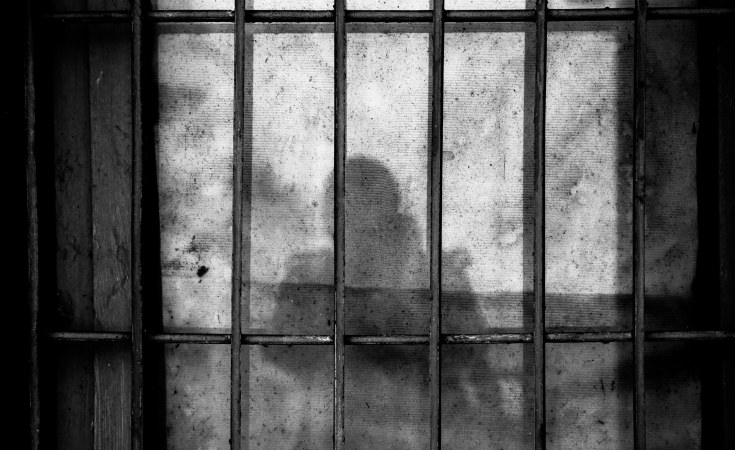Prison facilities across sub-Saharan Africa are housing at least 5841 death-row inmates, global rights body, Amnesty International, said.
More than half of the almost 6,000 death-row inmates in sub-Saharan Africa are in Nigeria, a new report shows.
Prison facilities across sub-Saharan Africa are housing at least 5841 death-row inmates, global rights body, Amnesty International, said in its annual review of the global death penalty.
Of the total number of death row inmates as of December 2021, about 3036, which represents over 52 per cent, were in Nigeria.
Kenya is behind Nigeria with 601 inmates on death row. This was followed by Tanzania with 480 sentenced to death. South Sudan housed 334 inmates. Zambia, the landlocked South African country, had 257. Cameroon had 250, Mauritania 183, Ghana 165, and Uganda 135.
At the other end was Sierra Leone which housed 117 inmates on death row and Sudan 95. Zimbabwe had 66, Mali had 48, Malawi had 37, and Liberia had 16.
Even though the death sentence is legal in Nigeria and other African countries, executions are a rarity.
For instance in 2021, despite sentencing 56 people to death, Amnesty International said Nigeria has no record of executions. Between 2007 and 2017, there were seven executions in the country with the last one taking place in 2016.
Only three countries in Sub-Saharan Africa recorded executions in the past year. Somalia had 21, South Sudan 9, and Botswana 3.
Global Data
Globally, Amnesty International recorded 579 executions in 2021, an increase of 20 per cent from the 483 executions recorded in 2020.
Despite the rise, the rights group said last year's figure remained among historical-low totals, constituting the second-lowest figure for global executions the organization has recorded since at least 2010.
The number of known death sentences increased by almost 40 per cent (from at least 1,477 in 2020 to 2,052 in 2021).
These figures do not include the thousands of executions and death sentences that the organization believed were carried out and imposed in China - which remained the world's lead executioner, Amnesty International said.
It added that secrecy in North Korea and VietNam, as well as restricted access to information in several other countries, has impaired a full assessment of global trends.
"Secretive state practices and restricted access to information for these three countries made it impossible to accurately monitor executions, while for several other countries, recorded totals must be regarded as minimum figures as some of the world's most prolific executioners returned to business as usual and courts were unshackled from Covid-19 restrictions," the report stated.
Iran accounted for the highest number of executions in 2021. The country executed at least 314 people (up from at least 246 in 2020), its highest execution total since 2017.
Amnesty International said this was due in part to a marked increase in drug-related executions--a flagrant violation of international law that prohibits the use of the death penalty for crimes other than those involving intentional killing.
Meanwhile, Saudi Arabia more than doubled its number of executions, a grim trend that continued in 2022 with the execution of 81 people in a single day in March.
"After the drop in their execution totals in 2020, Iran and Saudi Arabia once again ramped up their use of the death penalty last year, including by shamelessly violating prohibitions put in place under international human rights law. Their appetite for putting the executioner to work has also shown no sign of abating in the early months of 2022," said Agnès Callamard, Amnesty International's Secretary-General.
Somalia came behind Iran and Saudi Arabia with 21 executions. Yemen followed with 14 and South Sudan with 9. Japan had 3, Belarus 1, and UAE 1.
Death penalty as a tool of state repression
In several countries in 2021, the death penalty was deployed as an instrument of state repression against minorities and protestors, with governments showing an utter disregard for safeguards and restrictions on the death penalty established under international human rights law and standards, the rights group said.
"An alarming increase in the use of the death penalty under martial law was recorded in Myanmar, where the military transferred the authority to try civilian cases to military tribunals, which conducted summary proceedings without the right to appeal.
"Close to 90 people were arbitrarily sentenced to death, several in absentia, in what was widely perceived as a targeted campaign against protestors and journalists," Amnesty International said.
It noted that despite these alarming developments, positive signs of a global trend toward abolition continued throughout 2021.
"For the second consecutive year, the number of countries known to have executed people was the lowest since Amnesty International began keeping records."
Ms Callamard said that a world without state-sanctioned killing is not only imaginable but is within reach and her organisation will continue to fight for it. We will continue to expose the inherent arbitrariness, discrimination, and cruelty of this punishment until no one will be left under its shadow, she said.
"It is high time the ultimate cruel, inhuman, and degrading punishment is consigned to the history books," she said.


